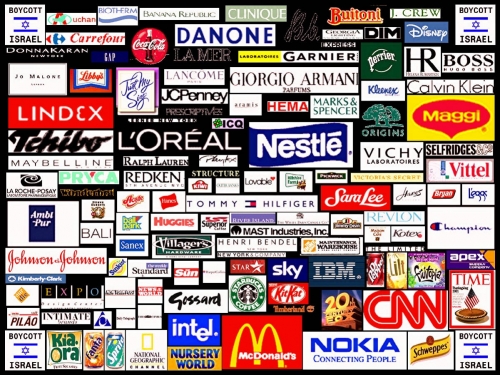
The arguments have become familiar. We want to enjoy life; music is not political; dancing should unify us, not divide us. We can’t keep being the sacrificial lamb of the Palestinian cause. Aren't you Lebanese? Are you an Islamist? Don’t you like rock and roll music, coca-cola, and dancing under the stars at open-air raves? Aren’t you for the freedom of expression? Are you (gasp) intolerant?
The questions that the debate whether we, in Lebanon, should join the Boycott, Divestment, and Sanctions campaign against Israel engenders have nothing to do with liking music, being fanatical, or censorship. The issue is not a band that played a concert in Tel Aviv, had a stopover in Cyprus, and continued on to Beirut. It is not that this same band performed the week the Israeli state attacked a flotilla of peace activists trying to break the criminal blockade of Gaza, an area of land that is home to over 1.3 million Palestinians and has been placed under siege for over three years. The question is not whether or not we can, or should, empathize with Palestinians living within a settler colony. The question is not if we have to be political. The question is: Can we afford not to be political? Can we absolve ourselves of responsibility towards each other as citizens and residents of Lebanon, as Arabs, or as human beings in the name of music and a good time? And if and when we do absolve ourselves of responsibility, what kind of politics are we engaging in? When we surrender politics to the politicians, what are we doing?
The political permeates every aspect of our lives. From the moment we wake up in particular neighborhoods in, for example, Beirut to the moment that our maid brings us our evening snack and puts our children to sleep, we are engaged in politics. This engagement continues as each of us drives in his or her car to locations that are close by, when we pass by the myriad unkempt children and disabled adults standing in highways selling their sadness, maneuver through a security checkpoint in a politician’s neighborhood, and as we sweat in long pants during the hot summer in a failed attempt to avert the unwanted verbal and physical advances of men on the Manara who know they are not accountable to anyone. Politics is about the struggle over life, how we live it, where we live it, who gets to live a livable life, and who gets to live. We are political because we are alive. Depoliticization is a political process, it is a tactic of a power that aims to separate the messiness of shared life into compartments such as “culture,” “government,” “economy,” “personal life,” “government,” and, my personal favorite, “civil society.” Once segregated into neat, independent packages, we are told that our “political” involvement begins, and ends, at the level of government. Depoliticization comes with neoliberalism, an ideology that masks its praxis being claims to be a “way of life.” The idea that Liberalism is a way of life or that it is simply “good values” has historically fueled capitalist expansion, colonialism, and the imperial notion that western history is at once the telos and the unfolding of world history. More recently, neoliberalism has been the ideology driving the perversion of human rights discourse to justify the invasions and occupations of Iraq and Afghanistan, the banning of the headscarf in France, and the reinvigoration of authoritarian regimes in the Arab world.
One does not have to engage in an ideological analysis to see that art, and in this case, music, is anything but apolitical. When U2 announced that it would not play any concerts in apartheid South Africa, they were making a statement. When Elton John refused to heed to the boycott of South Africa and played concerts in that country, he was also making a statement. Playing a concert in an apartheid state is a statement. When international artists perform in Israel after a BDS campaign has been launched and after they have been asked to join it in solidarity with the oppressed, their performance lends legitimacy to a political regime that openly calls for the continued occupation of Palestinian lands, legal and infrastructural apartheid, and the expulsion of indigenous populations outside the state’s borders. Perhaps musicians who play venues in Israel today are ignorant about the political situation. But is ignorance an excuse? Today, people with access to information have to consistently choose to remain ignorant of current events. Furthermore, ignorance about structural oppression, ongoing settler colonialism, and apartheid, is a luxury of power that contributes to violence against those that are not powerful. Neutrality in the face of gross inequality and oppression is the most insidious form of partisanship towards the powerful. Every act of boycott is a statement against the status quo.
Lebanese event organizers who invite artists that perform in Israel are not breaking any laws. But they are making a statement as to the normalization of ties with Israel and they are not supporting the Boycott, Divestment, and Sanctions initiative. People who want to attend these events are entitled to spend their leisure time however they want. But they too are making a statement as to the normalization of Lebanese ties with Israel and they, too, are choosing to not support the BDS campaign. If the choice for artists is between profiting monetarily from apartheid oppression and making a statement by not performing in Israel, for patrons, the choice is between allowing those who profit monetarily from apartheid to continue to profit monetarily from your own money. The calculations are simple. If enough people decide that they will not patronize performances by artists who also perform in apartheid Israel, either the event organizers will need to cater to this new reality or, imagine, we could actually force international artists to choose to either play in Lebanon or in Israel. Imagine Lebanon being “happening” enough to be a rival of Israel in terms of what is known as the “cultural scene” or the “summer circuit.” Imagine us being more effective than the hollow regimes that rule the Arab Middle East.
When I engage in an act of boycott against DJ Tiesto, I am also making a statement that I refuse to entrust the entire arena of politics, and the question of Lebanon’s relationship with Israel, to politicians that I know are corrupt, sectarian, and inefficient. I am making a statement that I refuse to normalize ties with a state that has invaded my country three times in the years that I have been alive, displaced over a million of my fellow citizens and destroyed tens of thousands of their homes as recently as 2006, and denies the right of return to over 400,000 Palestinian refugees living in Lebanon. I do not have a gun. I do not have a political party. I have a choice; to allow artists who break the boycott to profit from me or not. I make that choice because I cannot accept the logic that my life, or a Palestinian life, is worth less than an Israeli life. I make that choice because I refuse racism and the violence that it licenses.
My decision to boycott musicians who do not adhere to the BDS campaign is not because I am anti- Israel or because I am pro-Palestine. You can blame Palestinians for all of Lebanon’s problems and still take a stance against apartheid. If you are against the logic of racism and its articulation as settler colonialism, then you are also against apartheid. Apartheid is a technology of rule that has been operationalized in many different countries in different historical contexts, and will continue to be operationalized as long as it continues to be normalized. We should be demanding that artists refuse to be complicit in this system. Boycotts work. Today, sixteen years after the fall of the apartheid regime in South Africa, we should not expect less of the world. And we definitely should not expect less of ourselves.
Publisher:
Section:
Category:






